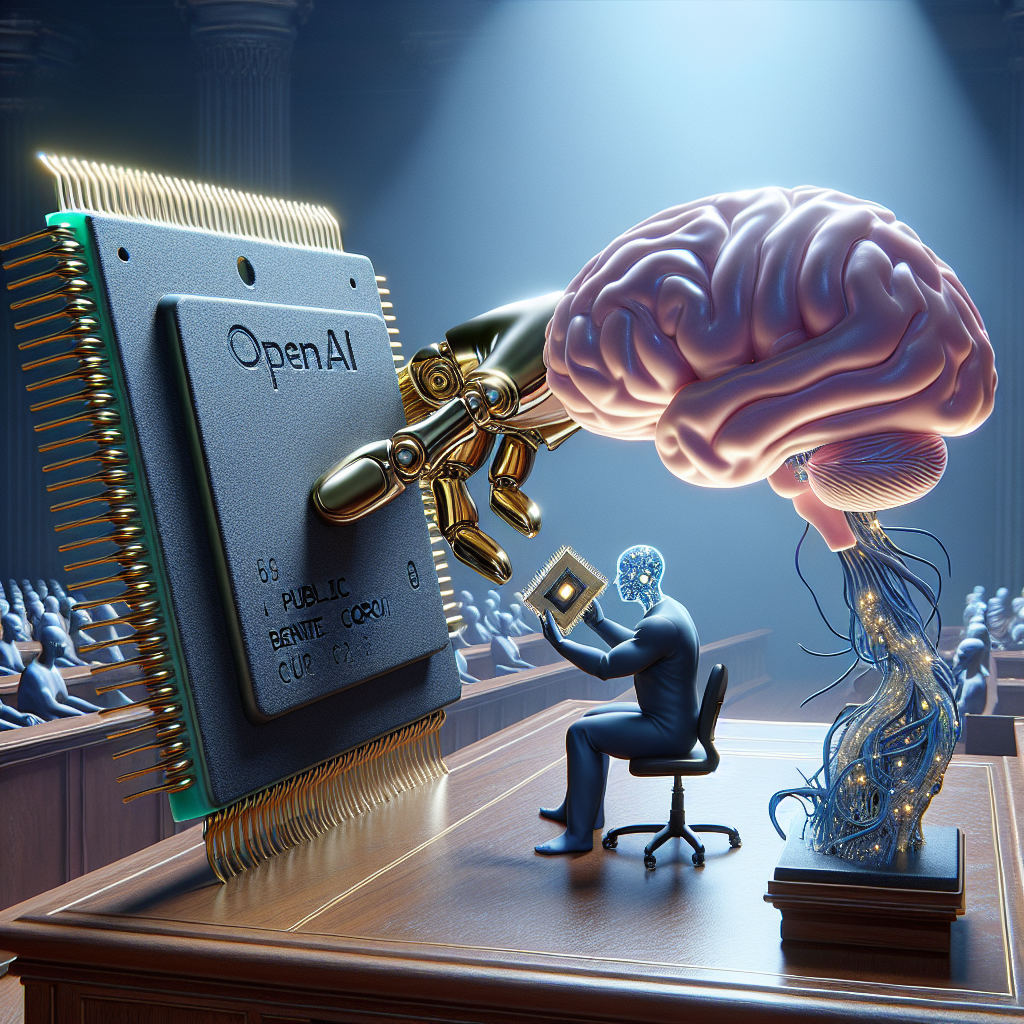OpenAI Evolves: From For-Profit Plans to Public-Benefit Corporation Structure
In a significant shift reflecting both market demands and ethical responsibilities, OpenAI has announced its decision to abandon plans to restructure as a for-profit entity. This move comes amid increasing calls for sustainable practices and accountability in artificial intelligence development. The announcement, made by CEO Sam Altman, outlines a new framework that transforms OpenAI’s for-profit subsidiary into a public-benefit corporation (PBC), keeping the main organization under nonprofit management. This change is indicative of a broader trend in the technology sector and could have implications for biotechnology and pharmaceutical companies venturing into AI technologies.
Background on OpenAI’s Shift
Since its inception nearly a decade ago, OpenAI has positioned itself at the forefront of artificial intelligence innovation. However, rapid growth and mounting demand for AI services have prompted the organization to reevaluate its operational structures. In his correspondence dated May 5, 2025, Altman highlighted the organization’s current inability to meet the global demand for AI solutions, stating, “We currently cannot supply nearly as much AI as the world wants.” This acknowledgment of demand saturation underscores the necessity for adaptive strategies, especially in the burgeoning field of AI.
Public-Benefit Corporation: A Commitment to Ethical AI Development
Converting the for-profit arm into a PBC is a strategic decision designed to align OpenAI’s operations with broader societal goals. The board of directors, guided by consultations with civic leaders as well as the offices of Delaware and California attorneys general, chose this structure, which balances the interests of shareholders with a mission-driven approach. Altman emphasized that by becoming a PBC, OpenAI can now focus on creating significant social benefits alongside generating returns for investors.
Importantly, the nonprofit organization will retain control over the newly established PBC, positioning it as a major stakeholder. This governance structure is intended to provide OpenAI with the necessary resources to expand its reach and impact, enabling the delivery of beneficial AI solutions to a wider audience. The potential capital influx, including a reported $30 billion investment from SoftBank, serves to enhance OpenAI’s capabilities and fulfill its expansive mission.
Challenges and Controversies in AI Development
The decision to pivot towards a PBC structure arises in the context of scrutiny from industry peers and former collaborators. Prominent figures like Geoffrey Hinton have underscored the importance of stringent oversight, expressing concerns about safety and ethical standards within AI development. The mixed reception of OpenAI’s for-profit plans reflects a broader apprehension about the commercialization of transformative technologies.
Elon Musk’s bid to acquire the nonprofit arm underscores the duality of innovation and safety in AI development. His leadership of xAI, a competitor focused on safety-conscious AI, hints at an evolving competitive landscape within the industry, one that may increasingly prioritize ethical frameworks alongside profitability.
The Future: Operating at Scale for Global Impact
Under this new structure, OpenAI will aim for three core objectives: operate sustainably, broadly distribute services, and achieve effective nonprofit status. Altman anticipates that fulfilling these ambitions will require “hundreds of billions of dollars” and potentially reach into trillions over time, highlighting the massive scale of investment necessary to catalyze meaningful advancements in AI.
The emphasis on creating “beneficial AGI” aligns OpenAI with organizations that share similar missions, such as Anthropic and Musk’s xAI. The commitment to upholding ethical standards while fostering innovation presents a unique opportunity for the biotechnology and pharmaceuticals sector. As these industries increasingly adopt AI to enhance drug discovery and patient care, lessons from OpenAI’s restructuring could provide a roadmap for ethical cultivation of breakthrough technologies.
The Broader Implications for Pharma and Biotech
As OpenAI’s governance model evolves, stakeholders in the biotech and pharmaceutical sectors should closely monitor these developments. The intersection of AI with drug discovery and personalized medicine creates an urgency for firms to prioritize responsible AI practices. OpenAI’s pivot to a PBC signifies a promising model that balances profit motivations with societal impact, possibly influencing policymakers to advocate for similar structures in life sciences.
Going forward, companies that embed ethical considerations into their AI strategies may not only enhance their reputations but also position themselves favorably in an increasingly competitive market. Collaborative efforts between AI sectors and pharmaceutical companies could spearhead revolutionary advancements in healthcare—if approached responsibly.
Conclusion
OpenAI’s transformation into a public-benefit corporation stands as a compelling indicator of future trends in technology, ethics, and investment within the AI landscape and beyond. As the demand for AI accelerates, the necessity for innovative operational frameworks that value both profitability and social responsibility will be paramount. This is especially true in the dynamic realms of biotechnology and pharmaceuticals, where ethical AI deployment could lead to groundbreaking discoveries and transformative patient outcomes.
















